Four Master's students talk about learning after graduation
Learning new things later in life? ‘It’s part of life nowadays’
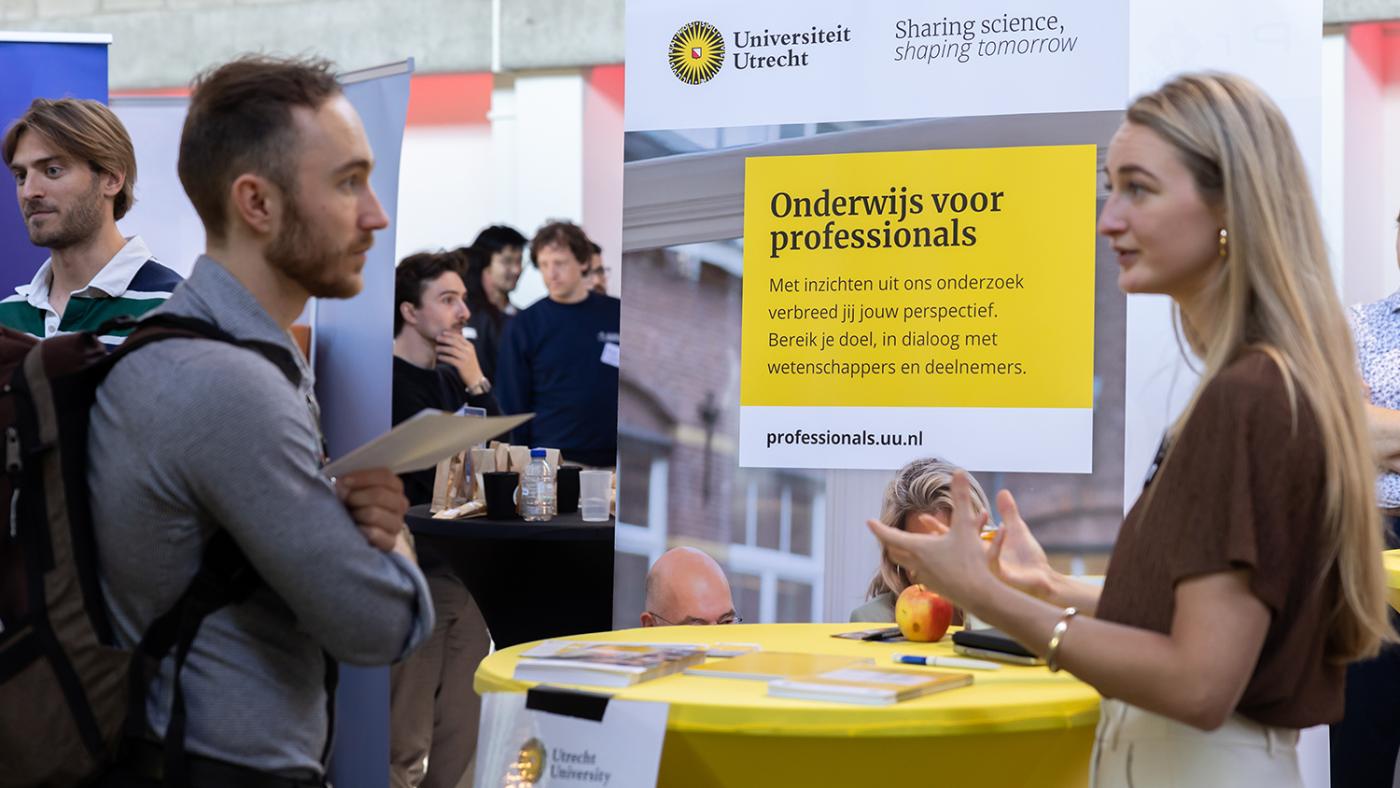
When asked how the labour market will change in the coming years, Joop Schippers, Professor emeritus of Labour Economics at Utrecht University, cheerfully replies: ‘Do you have a minute?’ According to him, the Dutch labour market faces considerable challenges now and in the future: a shortage of personnel, a changing world, technological developments and an ageing population.
The declining birth rate is of particular concern. There will be fewer young people in the labour market, which will present the Netherlands with tough issues. Schippers says that politicians will have to make difficult decisions regarding migration if the Netherlands wants to reverse this trend. ‘We don't know what to expect from that. Politicians are hopelessly divided on this issue.’
‘Fortunately, technological developments can compensate for a significant part of the shortages in the labour market.’ However, he emphasises the importance of considering societal needs. 'Do people want robots in healthcare or not? Do we want trains to be driven by robots or by flesh-and-blood drivers? Are we scared of driverless trains?' He hopes that the answers to these fundamental questions will be found. Schippers also mentions the Great Work Test, a public survey conducted by Studium Generale at Utrecht University, in which participants can share their opinions about working in a changing world. The survey should ultimately provide insights into what work means to people.
To remain employable, people must learn to deal with changes in the labour market, which may require further training.
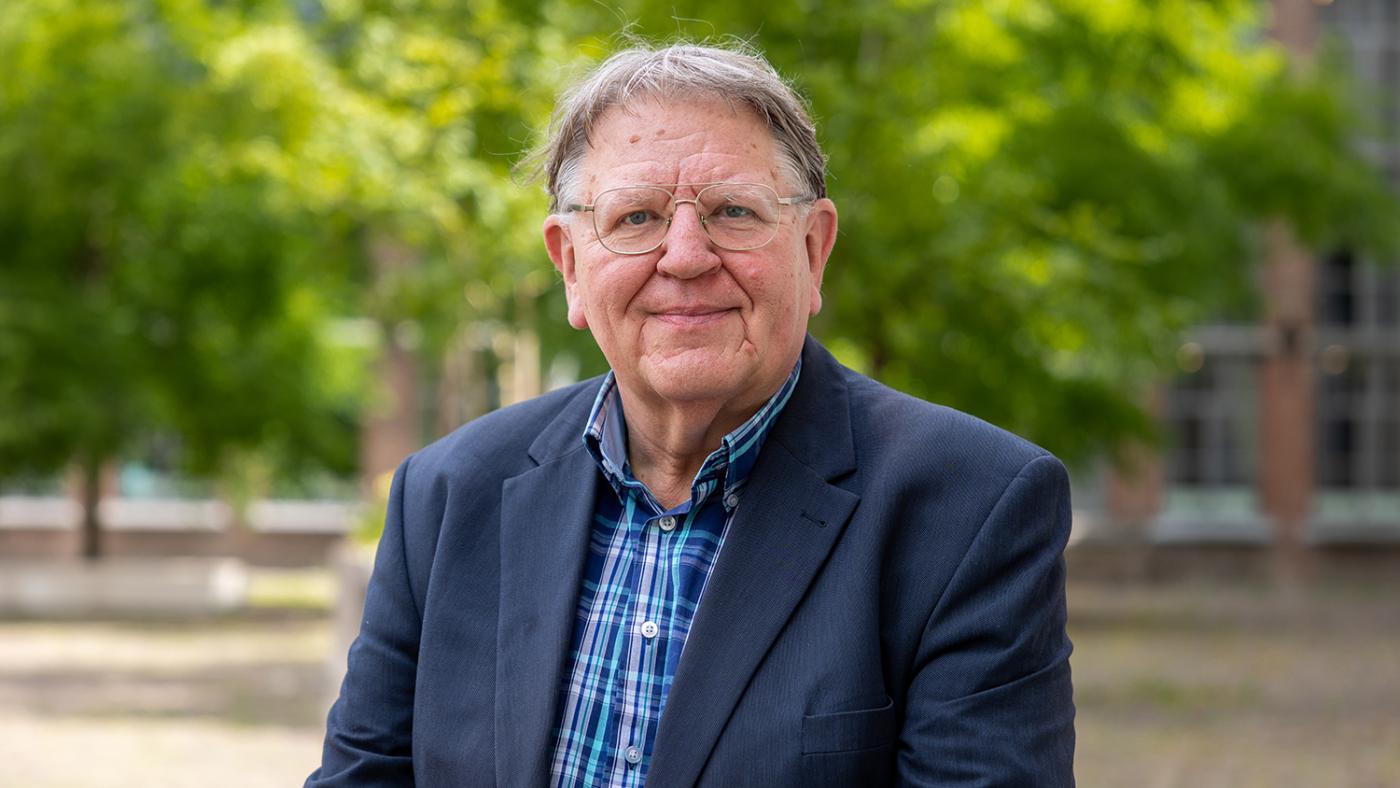
Joop Schippers. Photo: Tara van den Broek
Extension courses are a fixed item on the agenda
Continuing education is a fixed item on the work agenda for both the Dutch Food and Consumer Product Safety Authority (NVWA) and the cloud-native solution provider SUE. Although both employers are different in nature, one protecting public interests and the other a commercial company in the IT sector, their policies on lifelong learning are quite similar. Both have fixed annual training budgets and actively promote a working environment that prioritises further training and retraining. This illustrates how learning after graduation remains integral to the job and how training is a cross-sectoral theme.
As a government agency, NVWA supervises several areas, including food safety. It is a large employer with more than 3,500 staff members working in offices throughout the Netherlands, ranging from vocational students to PhD candidates. Guido van Hulzen, Senior Advisor on Labour Communication at NVWA, explains the possibilities. "Studying as an employee falls into two areas. When you join us, you are required to follow a professional training course before you can start working as a supervisor. That course lasts from eight to twelve months. In addition, each team has a fixed budget for further training. Some of the courses can be taken during working hours – that is what we would do if the course day falls on a Thursday, for example – but the rest must be done in your free time.' Good to know: many things that apply to NVWA apply to the entire government.
The same dynamic is also present at SUE, says Reinier Goeman, Talent Development Manager. SUE is a medium-sized company where a hundred students do internships each semester, some of whom may remain employed afterwards. 'We are an innovative company, and if you want to innovate, you can't do the same thing for 50 years. You have to keep learning. To make this possible, we have a generous study budget per person which can be spent on courses, conferences and the like. This also applies to interns – on average, they obtain five certificates per internship. Additionally, it is possible to take up to ten study days off. Unfortunately, the rest has to be done outside working hours,' says Goeman.
Development in consultation
How does such a study-friendly environment actually work in practice? Can employees take any course they want? In most cases, the answer for both employers is no. The courses should be relevant to the employee's current or future position. Guido van Hulzen, from NVWA, gives an example. ‘Do you want to progress from management assistant to content creator or events advisor? Then we will discuss what you need to achieve this. The employee may need to learn more about Photoshop so they can effectively incorporate images into our advertisements. We will then look for a course that fits that requirement. However, the offer of courses out there is huge, which is not surprising given that we have different positions in-house.’
‘Interns come to me when they want to obtain a certificate,’ says Reinier Goeman about SUE's working method. ‘I ask all kinds of questions, such as: why do you want to obtain this certificate? How much does it cost? Where are you going to take this course? This allows us to see if the course matches someone's work context.’ However, there is also room for broadening one's horizons, and he cites himself as an example. ‘I am currently taking a technical course even though I don't have a technical job. Still, it's useful to be aware of these things, because it makes me aware of what is going on with my colleagues and allows me to respond better to situations in my daily work.’
Recognition
Joop Schippers says that these two employers are not alone in valuing continuing education. ‘Developments in the labour market are happening so fast that you must keep up if you want your company to survive.’ The decision to approve work-related courses in order to maximise profits seems logical, he says. 'Though a non-work-related course can also be a stepping stone to another job, as it can contribute significantly to an employee's career. Such an investment prevents your organisation from being stuck with an employee who would actually prefer to do something else.' In closing, Schippers shares his hope that society will become a place where studying at any age becomes the most normal thing in the world.
‘I would rather study than buy a car.’
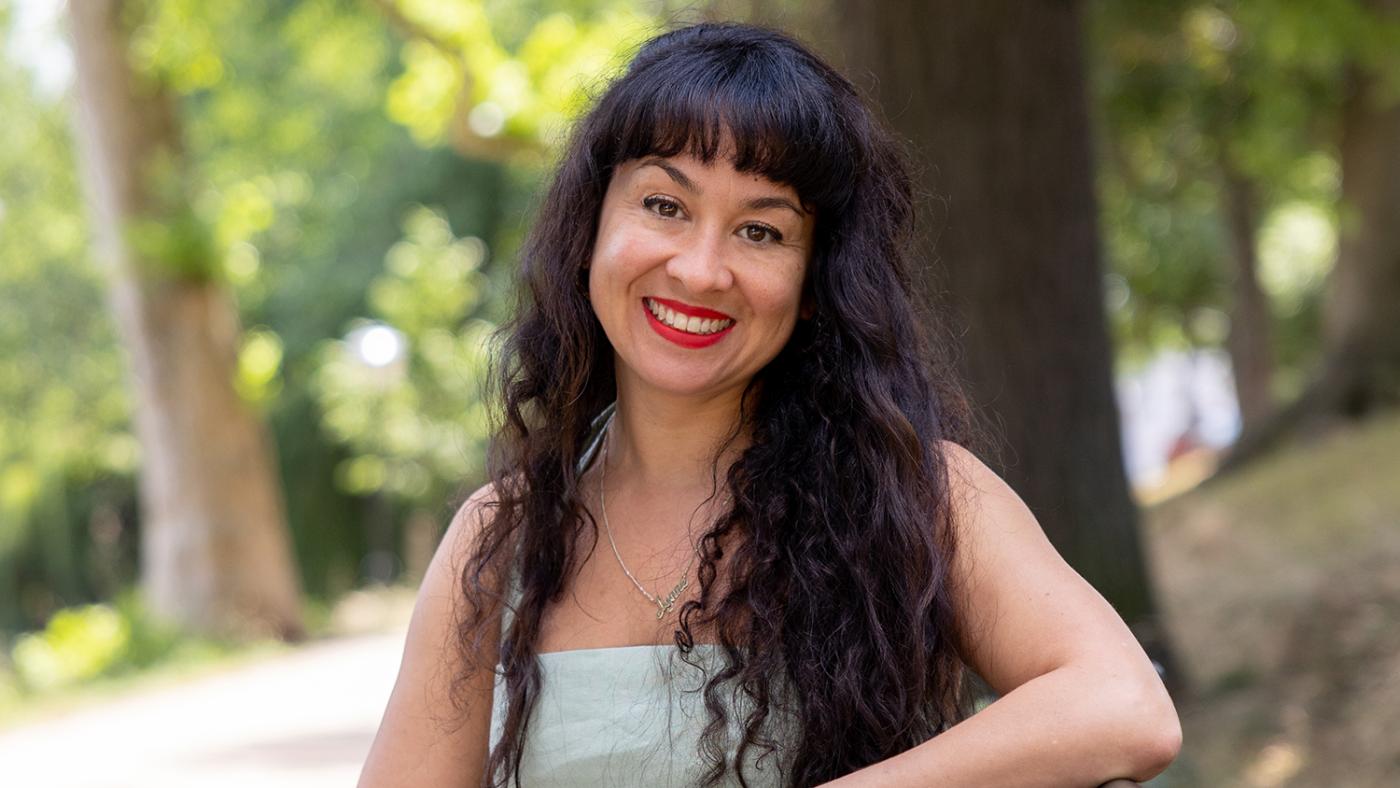
Master's student Lynn Bartels (44):
'I am currently pursuing a part-time Master's in Contemporary Dance Theatre & Dramaturgy. When it comes to studying, I have always followed my own path. When I was 19, I went to the Fontys Dance Academy in Tilburg. I didn't do my Bachelor's in Art History at the University of Amsterdam until I was around 30. I paid for my Bachelor's degree out of my own pocket, as my scholarship had already been used up on my dance training. I am not receiving a grant for my current Master's degree either. I can afford the tuition fees, but the monthly expenses make it difficult to study without an income. That is why I have opted for part-time study, as it enables me to continue working alongside my studies.
Nowadays, all courses are taught in English, which took some getting used to. Academic writing was particularly challenging. I got a 5 for my first essay, which I was really disappointed about. I had already written a Bachelor's thesis, hadn't I? I should be able to do this... Fortunately, I passed after rewriting the essay. I just had to figure out how it all works again.
In any case, I see myself studying again in ten years. It makes me so happy! I also need it to recharge myself. The financial aspect does become more difficult as you get older, but that doesn't deter me. I'd rather study than buy a car. If I won the lottery, I would do nothing but study.’
‘I can still see myself taking courses’
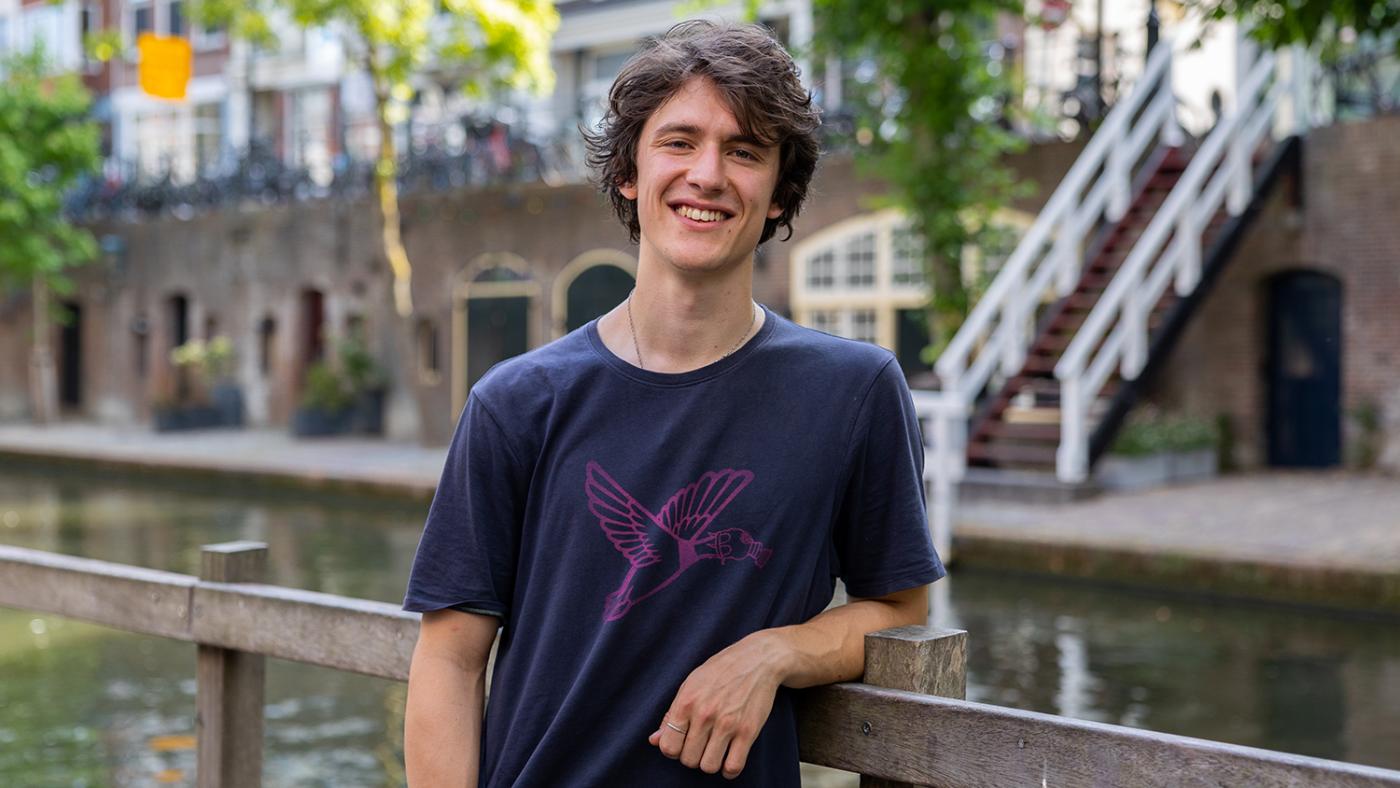
Master's student Johnny Varlow (25):
'I'm interested in cycling infrastructure. That's why I came from London to Utrecht to follow the Master's in Spatial Planning at UU. I wanted to study in a place where cycling and the associated infrastructure are part of everyday life. Utrecht is also an international leader in this field.
It's nice to study here. The semesters are longer than in England, which means you get more education. There are many contact hours here, which makes the education more beneficial for me. Getting to interact this much with my lecturers in Utrecht is a pleasant surprise. Since there is less of a hierarchical structure here, there is more room for open contact. After my Master's, I don't see myself continuing my studies. A PhD seems difficult to me because you are very much on your own, and spending four years working on a thesis seems awful. However, I do see myself taking courses in the future to further my knowledge. Perhaps a second Master's degree, but that would be much later.
I also learn a lot from the Internet, especially YouTube. There are countless videos that explain how to do something or how something works. I appreciate the differences between learning at university and learning from YouTube. At university, I have access to experts in the field who have a lot of knowledge about certain subjects, whereas on YouTube, I can find people who are good at explaining things slowly, and whose knowledge is directly applicable.'
‘You should never stop learning’
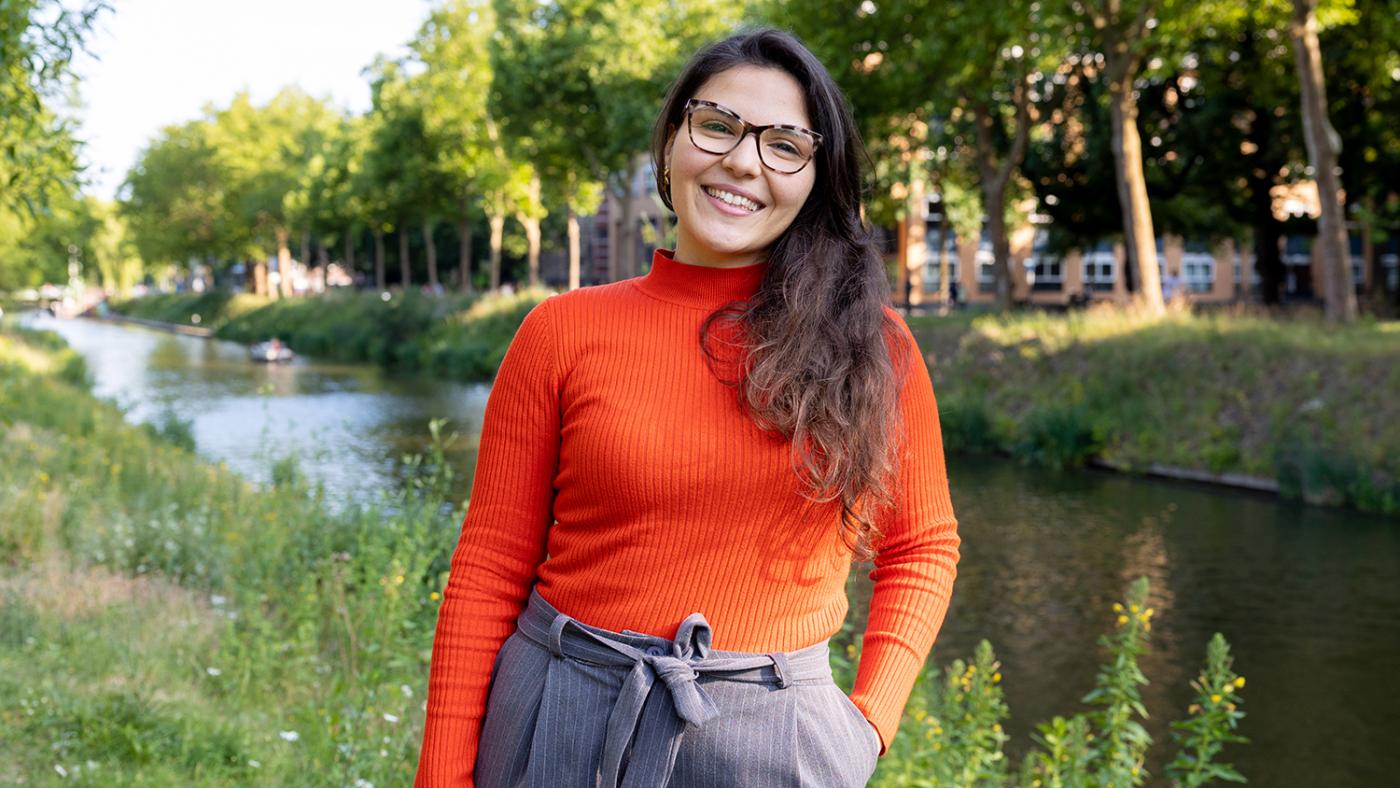
Master's student Yosra Belhadj (29):
'I am currently doing a Master's in Intercultural Communication at Utrecht University. I come from Tunisia, where I worked as a French-English translator for five years. I also did my previous studies there. I am really enjoying my time here in Utrecht. My classmates are nice and the lecturers are very friendly.
The main reason I went back to university was to open up more career opportunities. After working as a translator for five years, I began to feel bored. I needed a career change, so I decided to return to university. Working as a translator pays well, but it suits introverts better, as you often work on your own. I enjoy working with others and talking to people.
It's not cheap to live here as an international student. I must carefully consider every expense I make. Fortunately, my family supports me financially. That's why I went back to university, so that I can improve my financial situation. I hope to one day show my family how grateful I am by treating them to nice things, taking them on a holiday or out for dinner at my expense. After this Master's degree, I don't see myself returning to university. However, I do see myself taking courses later on. I believe that, as a human being, you should never stop learning in life.'
‘I would go back to university to change careers.’
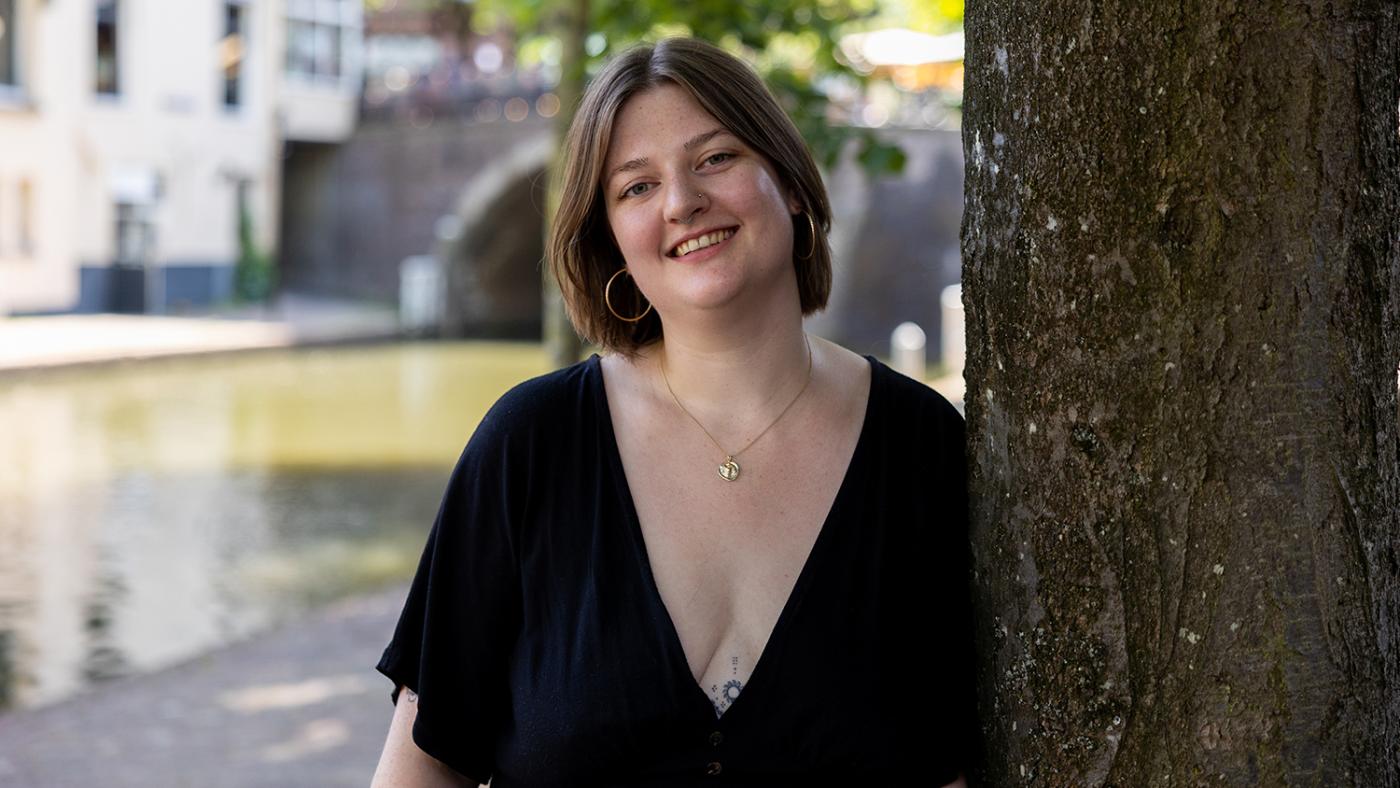
Master's student Lisa Wevers (25):
'I am currently doing a one-year Master's degree in Gender Studies at Utrecht University. I have a Bachelor's degree in History from Leiden University. I think studying has its good and bad sides. Learning new things suits me well, as does the freedom, which I notice even more now that I am doing an internship that requires a bit more structure from me. However, the deadlines for my studies stress me out. In addition, the topics I'm learning at university are very far removed from society, which I have a hard time with.
We often talk about people during lectures, but we don't do anything with them. We have to learn abstract theories rather than subjects that are actually useful to people. One of the topics we covered was “establishing an alternative peaceful society”, which is certainly an interesting concept to consider. However, I find it difficult to see the value of such a thing at the moment. It could certainly contribute something, but probably in the future rather than in the short term.
I think university is quite an elitist place. I come from a working-class family, and I am a first-generation student. Sometimes I feel that there is a difference between students whose parents have a university degree and those whose parents do not. I'm not sure if I want to be in such an exclusive environment again in the future. However, I do see myself studying again later on. In twenty years' time, I would like to switch careers and become a traffic controller at Prorail.'

This is an article from DUB's Lang zullen we leren! (Long may ww learn!) magazine, which was made in collaboration with Utrecht University's Continuing Education programme. The magazine can be found in several buildings of the university but all the articles from the magazine are also available online. Over the next two months, DUB's website will feature several of those articles and stories, as well as publish a few additional online-only articles about continuing education. You can find all the articles related to the magazine here.
Comments
We appreciate relevant and respectful responses. Responding to DUB can be done by logging into the site. You can do so by creating a DUB account or by using your Solis ID. Comments that do not comply with our game rules will be deleted. Please read our response policy before responding.